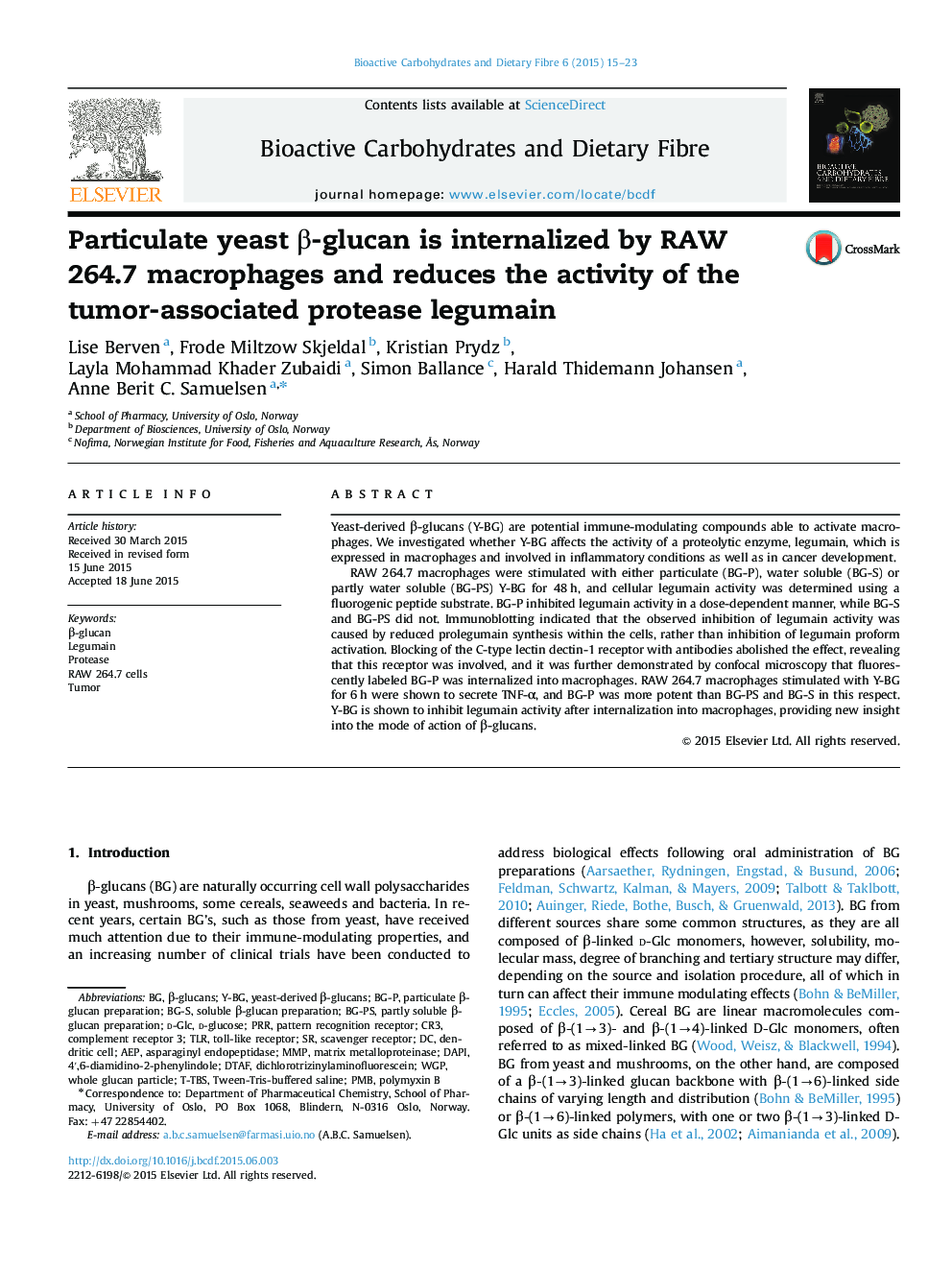| Article ID | Journal | Published Year | Pages | File Type |
|---|---|---|---|---|
| 1413012 | Bioactive Carbohydrates and Dietary Fibre | 2015 | 9 Pages |
•Particulate yeast-derived β-glucans inhibit legumain activity in RAW 264.7 cells.•Dectin-1 mediates the effect of yeast-derived β-glucans on legumain activity.•Particulate and soluble yeast-derived β-glucans induce TNF-α in RAW 264.7 cells.
Yeast-derived β-glucans (Y-BG) are potential immune-modulating compounds able to activate macrophages. We investigated whether Y-BG affects the activity of a proteolytic enzyme, legumain, which is expressed in macrophages and involved in inflammatory conditions as well as in cancer development.RAW 264.7 macrophages were stimulated with either particulate (BG-P), water soluble (BG-S) or partly water soluble (BG-PS) Y-BG for 48 h, and cellular legumain activity was determined using a fluorogenic peptide substrate. BG-P inhibited legumain activity in a dose-dependent manner, while BG-S and BG-PS did not. Immunoblotting indicated that the observed inhibition of legumain activity was caused by reduced prolegumain synthesis within the cells, rather than inhibition of legumain proform activation. Blocking of the C-type lectin dectin-1 receptor with antibodies abolished the effect, revealing that this receptor was involved, and it was further demonstrated by confocal microscopy that fluorescently labeled BG-P was internalized into macrophages. RAW 264.7 macrophages stimulated with Y-BG for 6 h were shown to secrete TNF-α, and BG-P was more potent than BG-PS and BG-S in this respect. Y-BG is shown to inhibit legumain activity after internalization into macrophages, providing new insight into the mode of action of β-glucans.
Graphical abstractFigure optionsDownload full-size imageDownload as PowerPoint slide
